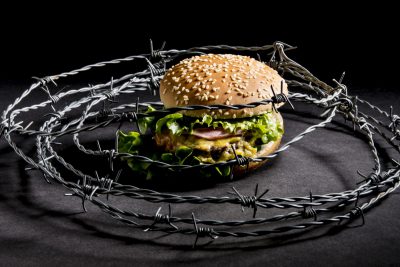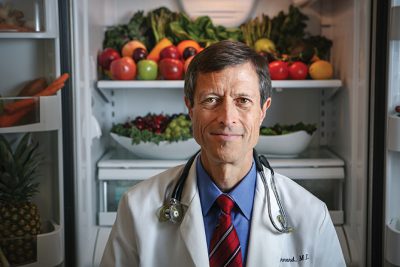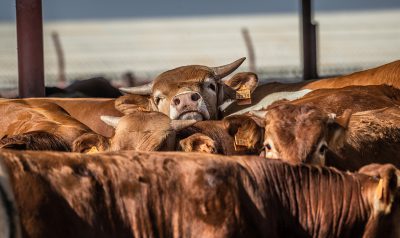When we see the price label on a packet of meat, it’s easy to think that it reflects what the product costs to make, but the true cost of animal products is huge, wide-ranging, and largely hidden. It includes: the cost to our health, a financial price borne in large part by public health systems; the expense of trying to prevent global deaths through antibiotic resistance; and the cost of animal agriculture’s immense environmental impact.
To combat these significant but hidden costs, politicians, scientists and think tanks are increasingly proposing the same solution: we need to implement a tax on meat.
Such a tax is not without precedent. In the UK, sugar, alcohol and tobacco are taxed as a way of discouraging us from consuming these damaging products and better protecting our health. We are also charged for plastic bags and for driving our cars in cities’ ‘congestion zones’, and these taxes are there to encourage us to change our behaviors and reduce our burden on the planet.
We are used to the government introducing such taxes where there is a pressing need, and there is little doubt that there is just such a need when it comes to meat.
The costs of processed and red meats
In 2015, the World Health Organization felt confident enough in the breadth and depth of research already conducted to state that processed meats cause cancer, and that red meats are also a ‘probable’ cause.
While processed red meat is largely linked to bowel cancer, eating more red meat than the recommended amount – which is common in wealthier countries – is linked to heart disease, strokes and diabetes.
Research carried out in the UK found that – to cover healthcare costs of eating red meat – a 20 percent tax on unprocessed red meat and a 110 per cent tax on processed products across wealthy nations (with lower taxes in less wealthy nations) would cut annual deaths by 220,000 and raise $170 billion / £130 billion. It would also lead to an annual $41bn saving in healthcare. In short, the price of bacon and sausages would double if the harm they cause to people’s health was considered.
But that is still not the true cost of meat.
The costs of antibiotic resistance and cross-species diseases
Professor Tim Lang from the Centre of Food Policy and Professor Mike Rayner from Oxford University’s Department of Health Population wrote that meat not only adds to the burden of non-communicable diseases, it is a key driver of antimicrobial resistance. This is because a significant amount of antibiotics are given to farmed animals just to keep them alive for the few weeks or months until they are slaughtered.
The World Health Organization has released surveillance data on antibiotic resistance which shows ‘high levels’ of resistance to a number of serious bacterial infections in both high- and low-income countries.
When she was Director-General of the World Health Organization, Dr. Margaret Chan said: “We face a post-antibiotic era, in which many common infections will no longer have a cure and once again, kill unabated.” She described antimicrobial resistance as a “slow-motion tsunami,” with the World Bank estimating that antibiotic resistance could cost the world economy $1 trillion every year after 2030.
And then there are zoonotic diseases – the pathogens that cross from animals to humans.
With three quarters of all emerging infectious diseases in people coming from animals, it is little wonder that the zoonotic diseases are described as “the biggest threat to the public globally.” These diseases include avian flu, anthrax, salmonella, and E. coli – all diseases that cause terrible suffering and can be fatal – and their impacts without effective antibiotics are likely only to worsen.
Worldwide, the direct cost of zoonotic diseases in the ten years to 2021 has been estimated at more than $20 billion, with over $200 billion indirect losses.
The costs of animal agriculture to the environment
And what of the cost of animal agriculture to our environment? How do we factor that into the price we pay for animal products at the till?
We know for certain that the meat industry is environmentally damaging. It is a key driver of climate change through its creation of more greenhouse gas emissions than that are emitted by the fuel of every car, plane, truck and train on the planet.
We know the meat industry is a key driver of deforestation through its unrelenting demand for more land. And with the loss of forests and other habitats, we lose whole animal populations, with farming cited as a key reason why wild animal populations have dropped by 60 percent since 1970. A monetary figure for all of this has yet to be worked out but the cost to the economy of deforestation alone is said to be in the region of $5 trillion.
Of course, the value of something does not rest solely in its financial worth, and we know of no meaningful way to quantify the devastating loss of the Earth’s wild places as our consumption of animal products drives countless species to extinction.
Combating the high costs associated with meat
While these losses cannot be calculated, we do know there are clear ways each of us can help to combat it. A wealth of evidence has led University of Oxford researchers to state that being vegan (eating no animal products at all) is probably the “single biggest way to reduce your impact on planet Earth, not just greenhouse gases, but global acidification, eutrophication, land use and water use.”
For all these reasons, researchers, economists, and public health experts are encouraging us along the plant-based path. We may have concerns that the poorest may be hit hardest by a tax on meat, but research shows that eating a plant-based diet is actually considerably cheaper than buying animal products in high-income countries. Besides, the income raised from the tax could be used to subsidise sustainable plant-based foods and to help farmers transition to more sustainable practices.
Farmers would not be disadvantaged. They have long been adept at diversifying to satisfy market trends, and there is an increasing number of former animal farmers who have switched to growing plant foods instead. No farmers need lose their livelihood. Vegans need farmers the same as everyone else does.
Change for the better
While we may know in our hearts that cutting down – or preferably cutting out – animal products will have significant and wide-ranging benefits, it seems that most of us still need to be nudged in the right direction.
After all, we knew that plastic bags were bad for the environment, but we still kept taking them home with us until a small charge for them was made. Three years after that levy was introduced in the UK, the number of single-use plastic bags given out by major retailers had fallen by 85 percent. In short, the tax on plastic bags works.
Increasingly, key thinkers see a ‘sin tax’ on beef, lamb, and pork as inevitable. We would propose it goes further and includes all meat, dairy, and eggs. After all, antibiotic resistance, zoonotic diseases and heart disease are not exclusively associated with red meats, and when it comes to polluted rivers, dairy farms are all too often in the spotlight.
Many people are already convinced of the need for governmental action here. Says Rob Bailey of The Royal Institute of International Affairs: “I find it hard to imagine a meat tax won’t be implemented within the next decade.”
Try vegan and download your free Vegan Starter Kit here </span><span style="font-weight: 400;">



